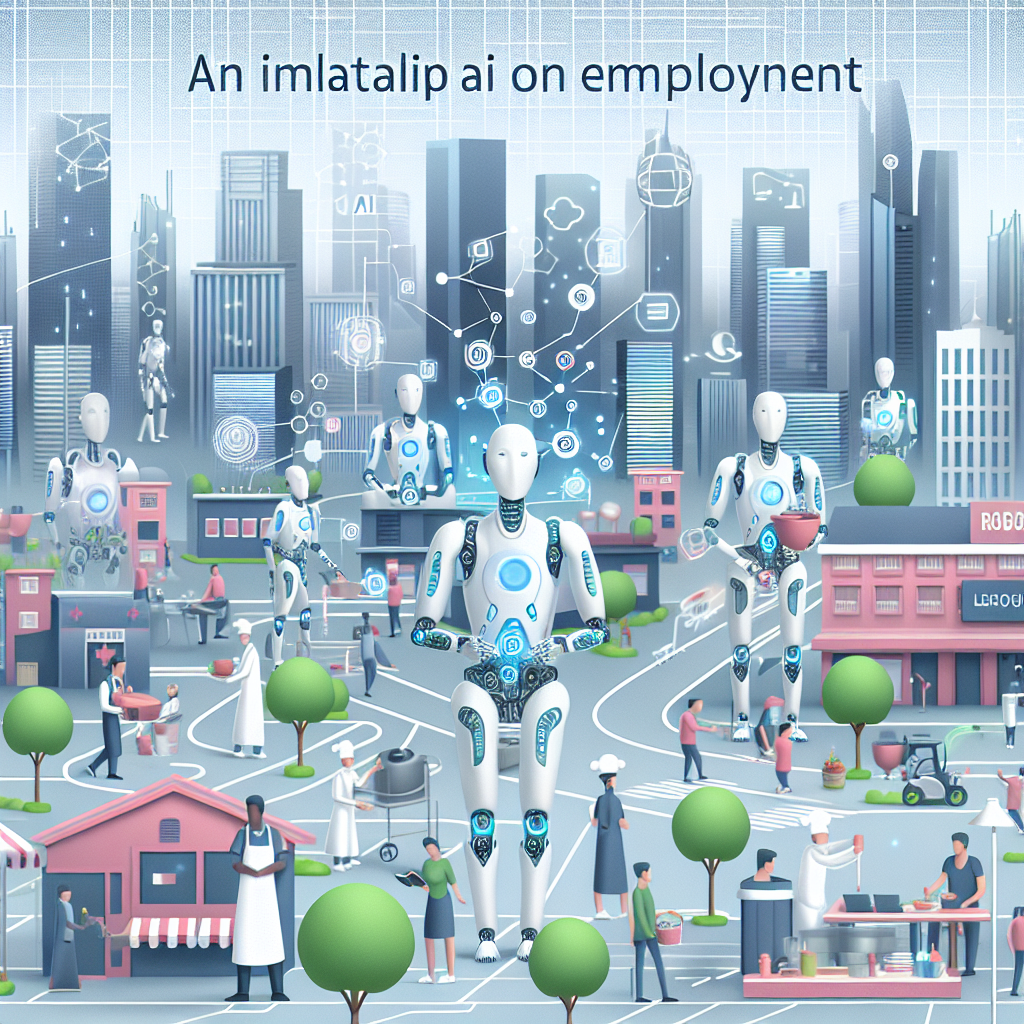Artificial intelligence (AI) has been a topic of much discussion in recent years, as its capabilities and applications continue to grow. One area where AI is having a significant impact is in the job market, as automation is changing the way many industries operate and the types of jobs that are available.
One of the main ways that AI is impacting employment is through automation. Tasks that were once performed by humans are now being done by AI systems, which can work faster, more efficiently, and often more accurately than humans. This has led to the elimination of some jobs that were previously done by people, as companies look to cut costs and increase efficiency through automation.
For example, in the manufacturing industry, robots are increasingly being used to perform tasks that were once done by human workers. This has led to a decrease in the number of manufacturing jobs available, as companies can now produce goods with fewer employees. Similarly, in the retail industry, AI systems are being used to automate tasks such as inventory management and customer service, leading to a decrease in the number of retail jobs available.
While automation has led to the elimination of some jobs, it has also created new opportunities in other areas. For example, the demand for AI specialists and data scientists has increased as companies look to develop and implement AI systems. Additionally, new industries such as autonomous vehicles and drone technology have emerged, creating new job opportunities for those with the skills to work in these areas.
Despite the potential for job creation in certain industries, the overall impact of automation on the job market is still a cause for concern. Some experts predict that up to 800 million jobs could be lost worldwide by 2030 due to automation, leading to significant disruptions in the labor market.
In response to these concerns, governments and organizations are beginning to take steps to address the impact of automation on employment. Some are calling for increased investment in education and training programs to help workers develop the skills needed to adapt to a changing job market. Others are advocating for policies such as universal basic income to provide financial support for those who may lose their jobs due to automation.
In conclusion, AI and automation are having a significant impact on the job market, leading to the elimination of some jobs and the creation of new opportunities in other areas. As technology continues to advance, it will be important for governments, organizations, and individuals to work together to ensure that the benefits of AI are shared equitably and that workers are able to adapt to a changing job market.


Leave a Reply